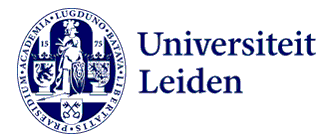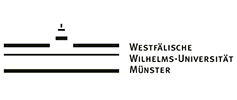Scopus Citation Analysis
- Christoph Enders, “Social and Economic Rights in the German Basic Law? An Analysis with Respect to Jurisprudence of the Federal Constitutional Court”, Constitutional Court 6, Issue 2 (December 2020): 190-209.
Cited by:
- I. D. G. Palguna, et.al., “The Role Of The Constitutional Court In Protecting Economic And Social Rights In Indonesia”, Journal of Legal, Ethical and Regulatory Issues 24, Special Issue 5 (2021): 1-16.
- Andy Omara, “Enforcing Nonjusticiable Rights in Indonesia”, Constitutional Review 6, Issue 2 (December 2020): 311-337.
Cited by:
- I. D. G. Palguna, et.al., “The Role Of The Constitutional Court In Protecting Economic And Social Rights In Indonesia”, Journal of Legal, Ethical and Regulatory Issues 24, Special Issue 5 (2021): 1-16.
- Svetlana Karamysheva, “Protection of Socio-Economic Rights by the Constitutional Court of the Russian Federation”, Constitutional Review 6, Issue 1 (May 2020): 1-35.
Cited by:
- I. D. G. Palguna, et.al., “The Role Of The Constitutional Court In Protecting Economic And Social Rights In Indonesia”, Journal of Legal, Ethical and Regulatory Issues 24, Special Issue 5 (2021): 1-16.
- Yurii Sheliazhenko, “Against the Odds: Protection of Economic, Social, and Cultural Rights by the Constitutional Court of Ukraine”, Constitutional Review 6, Issue 1 (May 2020): 67-109.
Cited by:
- I. D. G. Palguna, et.al., “The Role Of The Constitutional Court In Protecting Economic And Social Rights In Indonesia”, Journal of Legal, Ethical and Regulatory Issues 24, Special Issue 5 (2021): 1-16.
- Osayd Awawda, “The Regime's Violation of the Right to Property in the West Bank, Palestine: Rawabi Project as a Case Study”, Constitutional Review 6, Issue 1 (May 2020): 166-189.
Cited by:
- Norbert Scholz, “Bibliography of Recent Works 16 NOVEMBER 2020–15 FEBRUARY 2021”, Journal of Palestine Studies 50, Issue 3 (2021): 77-94.
- Hennie Strydom, “The Protection of Economic, Social and Cultural Rights in International Law”, Constitutional Review 5, Issue 2 (December 2019): 222-247.
Cited by:
- Md. Kamal Uddin et.al., “COVID-19 responses, human rights and the cultural context of Global South”, International Journal of Human Rights in Healthcare, Vol. ahead-of-print No. ahead-of-print. (2022).
- Afrizal Firman, et al., “Why Does Medical Confidentiality Matter During The Covid-19 Pandemic? A Case Study From Regulations In Indonesia”, Journal of Legal, Ethical and Regulatory Issues 24, Issue 1 (2021): 1: 13.
- I. D. G. Palguna, et.al., “The Role Of The Constitutional Court In Protecting Economic And Social Rights In Indonesia”, Journal of Legal, Ethical and Regulatory Issues 24, Special Issue 5 (2021): 1-16.
- Joseph Marko, “Bosnia-Herzegovina: The Role of the Judiciary in a Divided Society”, Constitutional Review 5, Issue 2 (December 2019): 194-221.
Cited by:
- Konstantin A. Polovchenko, "Influence of the Constitutional Court on the transformation of vital national interests of Bosnia and Herzegovina." European Politics and Society (2022): 1-11.
- Juan Sebastian Villamil Rodriguez, “The Internationalization of Judicial Review in the Colombian High Courts”, Constitutional Review 5, Issue 1 (May 2019) : 1-38.
Cited by:
- Stefano Angeleri, “Access To Health Care For Venezuelan Irregular Migrants In Colombia: Between Constitutional Adjudication And Human Rights Law”, The International Journal of Human Rights, (2021): 1-27.
- Björn Dressel, and Tomoo Inoue, “Megapolitical Cases before the Constitutional Court of Indonesia since 2004: An Empirical Study”, Constitutional Review 4, Issue 2 (Desember 2018) : 157-187.
Cited by:
- Benjamin Lawrence, “Outlawing Opposition, Imposing Rule of Law: Authoritarian Constitutionalism in Cambodia”, Asian Journal of Comparative Law 15, Issue 2 (March 2020): 225-249.
- Abdurrahman Satrio, “Constitutional Retrogression in Indonesia Under President Joko Widodo's Government: What Can the Constitutional Court Do?”, Constitutional Review 4, Issue 2 (Desember 2018) : 271-300.
Cited by:
- Tom Gerald Daly, Democratic Decay: Conceptualising an Emerging Research Field, Hague Journal on the Rule of Law volume 11, (2019) : 9-36.
- Tedi Sudrajat, “Harmonization of Regulation Based on Pancasila Values Through the Constitutional Court of Indonesia”, Constitutional Review 4, Issue 2 (Desember 2018): 301-325.
Cited by:
- Lego Karjoko, et.al., “The Consequence of The Decision of The Constitutional Court In Forestry On The Recognition Of Traditional Forests In Indonesia”, Journal of Legal, Ethical and Regulatory Issues; Arden 24, Issue 5 (2021): 1-8.
- Simon Butt, “The function of Judicial Dissent in Indonesia’s Constitutional Court”, Constitutional Review 4, Issue 1 (May 2018): 1-26.
Cited by:
- Hery Firmansyah, Eriyantouw Wahid, and Amad Sudiro, “Pretrial on SP3 Corruption Case in the Perspective of Victim Justice”, Journal of Environmental Treatment Techniques 8, Issue 4 (2020): 1439-1446.
- Simon Butt, “Constitutional Recognition of “Beliefs” In Indonesia”, Journal of Law and Religion 35, Issue 3 (December 2020): 450-473.
- Tim Lindsey, “Filling the Hole in Indonesia’s Constitutional System: Constitutional Court and the Review of Regulation in a Split Jurisdiction”, Constitutional Review 4, Issue 1 (May 2018): 27-44.
Cited by:
- Simon Butt, and Prayekti Murharjantim, “The Constitutional Right to a Healthy Environment in Indonesia” Journal of Environmental Law 33, Issue 1 (March 2021): 33–56.
- Giri Ahmad Taufik, “Proportionality Test in the 1945 Constitution: Limiting Hizbut Tahrir Freedom of Assembly”, Constitutional Review 4, Issue 1 (May 2018): 45-79.
Cited by:
- Simmon Butt, and Prayekti Murharjantim, “The Constitutional Right to a Healthy Environment in Indonesia” Journal of Environmental Law 33, Issue 1 (March 2021): 33–56.
- Muhammad Bahrul Ulum, and Nilna Aliyan Hamida, “Revisiting Liberal Democracy and Asian Values in Contemporary Indonesia”, Constitutional Review 4, Issue 1 (May 2018): 111-130.
Cited by:
- Susan Kneebone, et.al., “The False Promise of Presidential Regulation No. 125 of 2016?”, Asian Journal of Law and Society 8, Issue 3 (2021): 431-450.
- Fajar Laksono, Sudarsono Sudarsono, Arief Hidayat, and Muchammad Ali Safaat, “Relation between the Constitutional Court of the Republic of Indonesia and the Legislators according to the 1945 Constitution of the Republic of Indonesia”, Constitutional Review 3, Issue 2 (Desember 2017): 141-170.
Cited by:
- Abdul Kadir Jaelani, I Gusti Ayu Ketut Rachmi Handayani, and Lego Karjoko, “Executability Of The Constitutional Court Decision Regarding Grace Period In The Formulation Of Legislation”, International Journal of Advanced Science and Technology 28, Issue 15, (2019): 816-823.
- I Gede Yusa, Bagus Hermanto, and Nyoman Mas Aryani, “No-Spouse Employment and the Problem of the Constitutional Court of Indonesia”, Journal of Advanced Research in Law and Economics, [S.l.], Vol. 11, No. 1, (March 2020):14 – 226.
- Andy Omara, “The Indonesian Constitutional Court and the Democratic Institutions in Judicial Review”, Constitutional Review 3, Issue 2 (Desember 2017) pp. 189-207.
Cited by:
- Katharine G. Young, “The right-remedy gap in economic and social rights adjudication: Holism versus separability”, University of Toronto Law Journal 69, Issue supplement 1 (November 2019): 124-149.
- I Gede Yusa, Bagus Hermanto, and Nyoman Mas Aryani, “No-Spouse Employment and the Problem of the Constitutional Court of Indonesia”, Journal of Advanced Research in Law and Economics, [S.l.], Vol. 11, No. 1, (March 2020) :14 – 226.
- I Dewa Gede Palguna, “Constitutional Complaint and the Protection of Citizens the Constitutional Rights”, Constitutional Review 3, Issue 1 (May 2017): pp. 1-23.
Cited by:
- Abdul Kadir Jaelani, I Gusti Ayu Ketut Rachmi Handayani, and Lego Karjoko, “Executability Of The Constitutional Court Decision Regarding Grace Period In The Formulation Of Legislation”, International Journal of Advanced Science and Technology 28, Issue 15, (2019): 816-823.
- Oly Viana Agustine, “The Constitutional Will In Human Rights Protection For Refugees”, Constitutional Review 3, Issue 1 (May 2017): pp. 119-140.
Cited by:
- Susan Kneebone et.al., “The False Promise of Presidential Regulation No. 125 of 2016?”, Asian Journal of Law and Society , Volume 8 , Issue 3 , October 2021 , pp. 431 – 450.
- Luthfi Widagdo Eddyono, “Independence of the Indonesian Constitutional Court in Norms and Practices”, Constitutional Review 3, Issue 1 (May 2017): pp. 71-97.
Cited by:
- Hamdan Zoelva, “The Threat of Judicial Mafia in Indonesia in Discrediting the Principle of the Rule of Law”, International Journal of Criminology and Sociology 10 (2021): 839–844.
- Zezen Zaenal Mutaqin. “The Strong State And Pancasila: Reflecting Human Rights in the Indonesian Democracy”, Constitutional review 2, Issue 2 (Desember 2016): 159-188.
Cited by:
- Martin Ramstedt. “Prospects of Pluralism in Indonesia Gauged from a Legal Anthropological Perspective”, Asian Journal of Social Science 47, Issue 3 (August 2019): 309-339.
- Josef Papilaya, Muhammad Rijal, and Jeanete Ophilia Papilaya, “Evaluation of Cooperative Development Policies in Maluku Province, Indonesia”, Journal of Southwest Jiaotong University 56, Issue 1 (February 2021): 46-57.
- Dhian Indah Astanti, and Aga Natalis, “Development of Bank Secrecy Principle Regulations to Uncover Crimes and Increase State Revenue in Indonesia”, International Journal Of Pharmaceutical Research 13, Issue1 (January-March 2021): 4566-4572.
- Harimurti, Y., Fauzan, E., Yulianingsih, I. & Purbasari, I “Consensus as Democratic Education on the Village Consultative Body Election in Bangkalan”, Journal of Social Studies Education Research 11, issue 2 (2020): 84-110.
- Indrastuti, Lusia & Prasetyo, Budi, “Environmental Protection in Pancasila Perspective”, ANP Journal of Social Science and Humanities 1, Issue 1 (2020): 7-10.
- Dewansyah, Bilal & Nafisah, Ratu Durotun, “The Constitutional Right to Asylum and Humanitarianism in Indonesian Law:“Foreign Refugees” and PR 125/2016”, Asian Journal of Law and Society 8, Issue 3 (2021): 536-557.
- Papilaya, Josef, et.al., “Evaluation of Cooperative Development Policies in Maluku Province, Indonesia”, Journal of Southwest Jiaotong University 56, Issue 1 (2021).
- Pan M. Faiz, “A Prospect and Challenges for Adopting Constitutional Complaint and Constitutional Question in the Indonesian Constitutional Court”, Constitutional Review 2, Issue 1 (May 2016): 103-128.
Cited by:
- Muhammad Bagus Adi Wicaksono, et.al., “Degradation Of Authority Local Governments In Coal Mining Licenses And Environmental Management In Indonesia”, Journal of Legal, Ethical and Regulatory Issues 24, (2021): 1-11.
- Iwan Satriawan, and Khairil Azmin Mokhtar “The Constitutional Court’s Role in Consolidating Democracy and Reforming Local Election”, Constitutional Review 1, Issue 1 (May 2015) : 103-129.
Cited by:
- Camden Kelliher, Saldi Isra, Yuliandri, Zainul Daulay, Hilaire Tegnan, and Feri Amsari, Unconstitutional Authority of Indonesia's Constitutional Court: The Resolution of Pilkada Result Disputes, Election Law Journal: Rules, Politics, and Policy 18, Issue 3 (September 2019) : 297-308.
- Heribertus Jaka Triyana,” The Role of the Indonesian Constitutional Court for An Effective Economic, Social and Cultural Rights Adjudication”, Constitutional Review 1, Issue 1 (May 2015) : 72-102.
Cited by:
- I. D. G. Palguna, et.al., “The Role Of The Constitutional Court In Protecting Economic And Social Rights In Indonesia”, Journal of Legal, Ethical and Regulatory Issues 24, Special Issue 5 (2021): 1-16.
-
Cited by:
- Wahyu Nugroho, “Relationship Between Environmental Management Policy and the Local Wisdom of Indigenous Peoples in the Handling of COVID-19 in Indonesia”, Oñati Socio-Legal Series 11, Issue 3 (2021): 860-882.
- Rahmat Syafaat, “A New Paradigm of Indonesian Forest Management Based on Local Wisdom”, Pertanika Journal of Social, Sciences & Humanities 27, Issue 1 (March 2019) : 571-584.
- Luthfi Widagdo Eddyono, “The First Ten Years of The Constitutional Court of Indonesia: The Establishment of The Principle Of Equality And The Prohibition of Discrimination, Constitutional Review 1, Issue 2, (December 2015): 119–146.
Cited by:
- I. Gede Yusa, Bagus Hermanto, and Nyoman Mas Aryani, “No-Spouse Employment and the Problem of the Constitutional Court of Indonesia”, Journal of Advanced Research in Law and Economics, [S.l.], Vol. 11, No. 1, (March 2020) :14 – 226.

























































